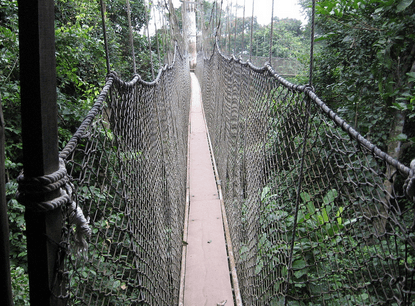Ghana is pursuing a sustainable ecotourism development agenda as one of the local solutions to addressing climate change impact on the environment.
The country is also employing the same strategy to protect her unique plants such as timber and non-timber species.
The non-timber species include Talbotiella gentii, a critically endangered tree in Ghana, animals such as elephants, leopards, and baboons, and insects like the butterfly.
This is in line with the tenets of the recently adopted “Kunming-Montreal Global Biodiversity Framework (GBF),” a global accord, agreed on at the 15th Conference of Parties to the UN Convention on Biological Diversity, which has four goals and 23 targets, that seek to ensure humans live in harmony with nature.
Home Environmental issues Biodiversity Ghana pursuing sustainable ecotourism as solution to climate crisis


